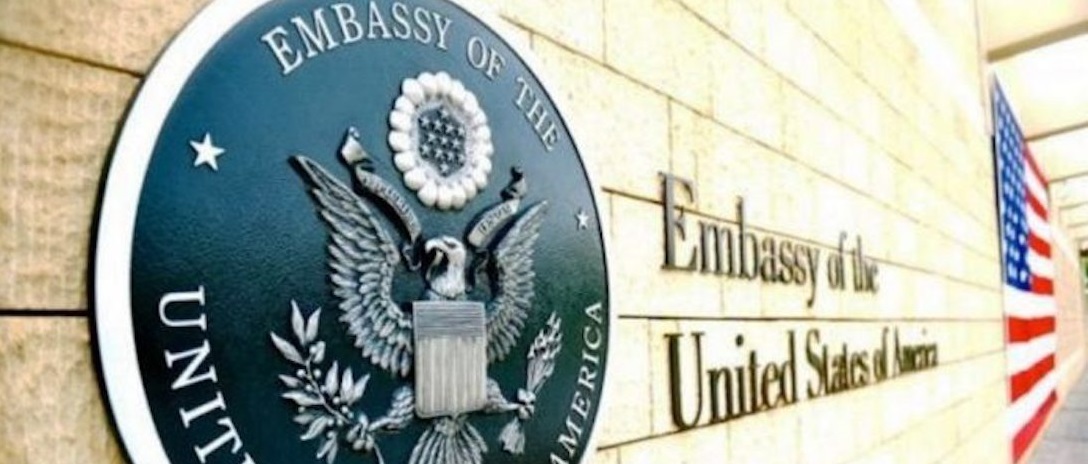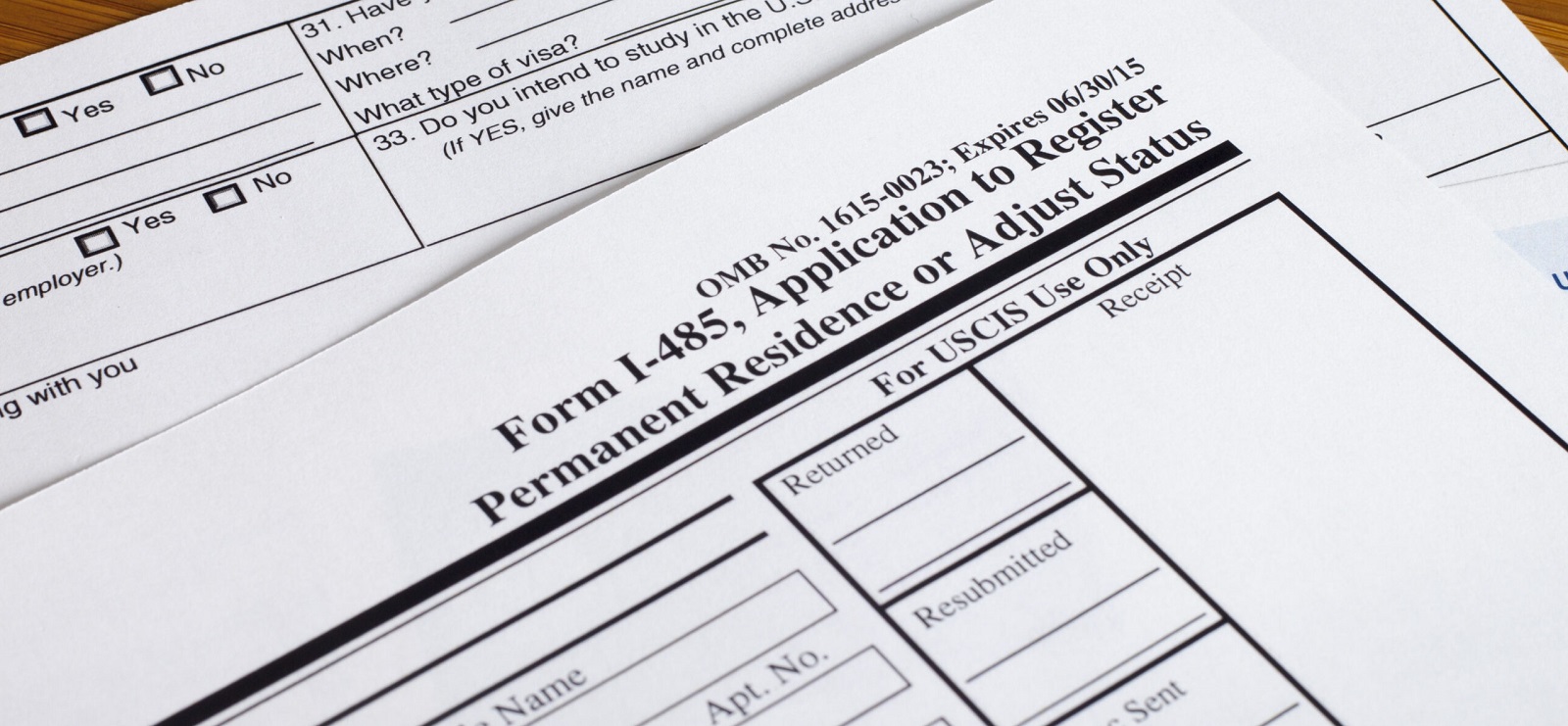
As a member of the U.S. armed forces, you can generally marry a foreign national like any other American. However, there are some considerations, particularly if you are serving abroad. Compared to civilians, your partner's immigration path will be very similar. As a service member, you may have some unique challenges, but you also have some advantages.
It’s not uncommon for military service members to develop romantic relationships with foreign nationals while stationed abroad. In many cases, these couples may pursue marriage. Immigration is already complicated; it adds a level of difficulty when the sponsor is working outside the United States on government orders.
What are the requirements for a U.S. service member to marry a foreign national?
How does my foreign national spouse immigrate?
Is an online marriage possible for military service members?
What if my spouse is undocumented?
What special resources and advantages are availble to those who serve?
How can CitizenPath help a military spouse immigrate?
Requirements for U.S. Service Members to Marry a Foreign National
Before getting started, make sure you meet your branch's requirements, adhere to local laws as applicable, and can satisfy the immigration requirements.
Military Requirements for Marriage
Each service has separate regulations that provide guidance on matters related to marriage to a foreign national. Go through your chain of command to inform them of your intent as well as to learn about the procedures within your branch.
While you may not be required to obtain approval from your command, it’s best practice to notify your chain of command of your intentions and learn more how your decision affects your service commitment.
Security Clearance
If a service member’s role includes handling sensitive, classified defense information or cryptographic data, disclosing close relationships with foreign nationals is imperative. Generally, your personal relationship with foreign citizen shouldn’t affect your pursuit or maintenance of a security clearance. Co-habitation or marriage to a foreign national will almost certainly increase the level of scrutiny you receive during the process, but disclosing the relationship is essential.
Local Laws and Procedures
For couples who will marry abroad, don’t forget to consider the local laws and procedures. There may be unique requirements or a separate list of criteria for marriage before an official ceremony can take place. It’s important that you adhere to local requirements and ensure that your marriage is legal. U.S. immigration law will honor your foreign marriage, provided it is lawful in the jurisdiction where it took place.
U.S. Immigration Procedure
Generally, a foreign national who marries a U.S. citizen will need to apply for permanent residence (green card) in the United States. Even as the spouse of a military service member, this is not a guaranteed benefit. Your spouse must apply like any other family-based immigrant. In general, you and your spouse must meet the following requirements:
For petitioning service members:
- Be a U.S. citizen or permanent resident
- Have income that meets or exceeds 100 percent of the federal poverty guidelines for your household size
- Accept financial responsibility for your spouse
- Not have previously committed certain types of crimes
For foreign national spouses seeking permanent residence:
- Prove your identity and nationality
- Not have previously committed certain types of crimes or immigration violations
For both spouses:
- Prove termination of previous marriages (if applicable)
- Have a lawful marriage ceremony and valid certificate
- Demonstrate a bona fide marriage
Additional requirements will apply based on your situation and specific path for applying. If you’re currently abroad and want to make sure your fiancé or spouse returns home with you, it takes some planning. Your loved one needs more than a marriage certificate or military dependent ID to get to the United States. They’ll need a valid visa. That will take some time and may even require some period of separation.
There are obviously several scenarios. A permanent change of station (PCS) may even mean moving to a completely new country. First, our article covers the different paths someone can take to marry a U.S. citizen and obtain permanent residence (green card status) in the United States. The immigration laws are the same for military as they are for civilians.
Paths to Marriage and U.S. Immigration
We’ll cover four of the most common scenarios or paths for couples that want to marry and then obtain permanent residence in the U.S. for the foreign spouse:
K-1 Visa for the Fiancé of a U.S. Service Member
If you prefer to marry in the United States, you can petition a foreign fiancé for a K-1 visa. This visa is designed specifically for the purpose of helping a fiancé come to the United States for marriage to a U.S. citizen petitioner.
The process begins with the U.S. citizen filing Form I-129F, Petition for Alien Fiancé with U.S. Citizenship and Immigration Services (USCIS). Because it will take a few months before a visa is issued, the U.S. service member may even file the petition while serving abroad. However, the petitioner must relocate to the United States prior to, or at the same time, as the fiancé beneficiary.
The marriage must take place within 90 days of the beneficiary’s entry, and then the foreign national may adjust status to a permanent resident (green card holder).
Marriage Abroad and Immigrate as a Military Spouse
Sometimes it may be more practical for the service member to marry abroad. In this case, you can petition the foreign national as a spouse. When your spouse enters the United States, they will already be a permanent resident.
The process begins with the U.S. citizen filing Form I-130, Petition for Alien Relative with USCIS. Among other supporting documents, you’ll need a marriage certificate based on a valid marriage. Again, the petitioner may file Form I-130 while outside the United States. After several months of processing, the beneficiary interviews at the U.S. embassy or consulate within that country. Once consular officials approve the immigrant visa, the beneficiary may enter the United States with some flexibility in the timing.
The petitioner must relocate to the United States prior to, or at the same time, as the spouse beneficiary. Upon entry the foreign national becomes a permanent resident. This method of immigration is called consular processing.
Certain Military Spouses May Apply for a Green Card in the U.S.
Certain military spouses who are already inside the United States won’t have to leave in order to get a green card. This process, known as adjustment of status, is generally available only to spouses physically present in the U.S. who have an immigrant visa immediately available to them.
There is an unlimited number of immigrant visas for the immediate relatives of U.S. citizens. Thus, the spouses of U.S. citizens always have an immigrant visa available to them. This isn’t the case for all types of immigration relationships. Congress puts statutory limits on the number of visas available to other categories. This can often create a wait time. At the time of writing this, there is a short wait for the spouses of lawful permanent residents. Therefore, adjustment of status may not be available to the spouses of permanent resident service members.
Supporting Documents for Immigrant Spouses of U.S. Military
Regardless of the path taken, the application package must contain several supporting documents. The supporting documents can vary significantly based on the type of relationship and answers in each form. CitizenPath provides an affordable way to make this process easier. Attorneys designed the online immigration service to simplify the preparation of these government forms. In addition to your prepared forms, you get a checklist of supporting documents to file. See how it works >
Online Alternative to Marriage for Military
Online marriages have become more commonplace in a today's times. Military service often means loved ones are thousands of miles away, and global pandemics can further complicate being in the same space. Even if unable to be physically together, an online wedding enables couples to get married.
An online marriage is generally legal for the purposes of U.S. immigration. However, it's important to understand that the couple must consummate the union after the marriage in order for immigration officials to consider it lawful for immigration. Therefore, it's necessary that the couple be in the same physical space at some point after the marriage. Consummation prior to the marriage does not meet the criteria.
A proxy marriage is a marriage ceremony where one or both parties are not physically present for the ceremony. It is a legally binding form of marriage available in some states. The laws vary by state and may require hiring a local attorney to facilitate the process. Nonetheless, this may be an attractive option for couples that want a “U.S. marriage” before even arriving. U.S. immigration law will honor proxy marriages if the marriage is valid in the state where it is performed and is consummated through sexual relations after the marriage ceremony.
Because most military benefits such as housing allowances and health care are only available to spouses, the proxy marriage option can be helpful to military couples.
Getting married is complicated. Courtly simplifies the process for military couples and provides everything necessary to get married online, even a licensed officiant who can perform a remote ceremony. Use code CITIZENPATH to get a 15% discount.
Undocumented Spouses of U.S. Military Service Members
Even certain undocumented spouses of U.S. service members can qualify for a green card. The spouse of a U.S. citizen may apply for a green card after a visa overstay provided they continue to be inside the country. It's generally straight forward and doesn't require special attention from a lawyer. However, the process is more complicated for spouses of permanent resident service members to obtain a green card after a visa overstay. The undocumented spouses of permanent residents should generally contact an immigration attorney to find a solution that best fits their situation.
Military spouses who are inside the United States through an unlawful entry, may be eligible for the Parole in Place program. In the short term, the program provides protection from deportation and employment authorization. Military spouses may adjust status during this time. To qualify for Parole in Place as a military spouse, you must be:
- Physically present in the United States without inspection;
- The spouse of an active-duty member of the U.S. armed forces, someone in the Selected Reserve of the Ready Reserve, or someone who previously served in the U.S. armed forces or the Selected Reserve of the Ready Reserve; and
- Without any criminal convictions or other serious adverse factors.
Immigration Advantages for U.S. Service Members
A military service commitment can make the immigration more challenging. Fortunately, there are also some benefits to even the deck.
Special Resources for Military Personnel
USCIS offers some additional support resources to U.S. military personnel. Members of the military and their families may can use the USCIS toll-free military help line at 1-877-247-4645, Monday through Friday from 8 a.m. until 4:30 p.m. (CST), excluding federal holidays. You may use your base telephone operator or the Defense Switched Network (DSN). The military help line offers good basic information, but they cannot give you legal advice.
You may also be able to get assistance from your JAG officer. Although not all JAG officers are highly knowledgeable on immigration matters, some are and may be able to help with your specific situation.
Special Military Discounts
CitizenPath provides a 25 percent military discount to active-duty military and veterans. The benefit extends to immediate family to include spouse and children.
Reduced Federal Poverty Guidelines
Generally, all family-based immigrants must have a financial sponsor. Civilians must have income or resources that meet or exceed 125 percent of the federal poverty guidelines (FPG) their household size. This requirement is reduced to 100 percent of the FPG for certain members of the military. If you provide evidence that you are currently on active duty in the U.S. Armed Forces or U.S. Coast Guard and you are petitioning for your spouse and/or minor child, you will need to demonstrate income at only 100 percent of the poverty level for your household size.
Parole in Place Program
For the spouse of a civilian U.S. citizen there is a high hurdle to overcome an unlawful entry. Obtaining a green card after illegally entering the United States can be extremely difficult. However, a policy called Parole in Place makes legalization for the undocumented spouses of service members more accessible.
Foreign Residence
Generally, a foreign national with permanent resident status must make the United States their primary residence. However, the spouse of a U.S. service member may be able to reside overseas on U.S. bases in certain situations.
Affordable Immigration Solutions for Military
As a U.S. armed forces service member, you sometimes find love in the far corners of the world. There are established paths for you to help your spouse or fiancé come to the United States. A long deployment may even mean that you’ve started a family before you’ve even had a chance to return to the U.S. But even if you’ve found that special person inside the U.S., you can help your foreign citizen spouse obtain a green card.
CitizenPath provides simple, affordable, step-by-step guidance through USCIS immigration applications. The online platform is available all hours of the day. Individuals, attorneys and non-profits use the service on desktop or mobile device to prepare immigration forms accurately, avoiding costly delays. CitizenPath allows users to try the service for free and provides a 100% money-back guarantee that USCIS will approve the application or petition. We provide support for the K-1 Visa Petition Package (Form I-129F), Immigrant Visa Petition Package (Form I-130), Adjustment of Status Package (Form I-485), and several other immigration services.
Want more immigration tips and how-to information for your family?
Sign up for CitizenPath’s FREE immigration newsletter and
SAVE 10%
on our immigration services







